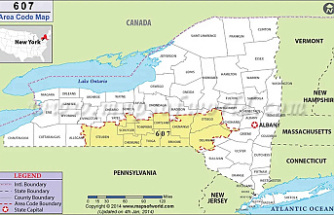BUTTE, Mont. A jury in Montana awarded $36.5million in damages to an Oregon man who contracted lung disease from asbestos exposure while working in Libby's vermiculite mine. This case is a bellwether that could impact hundreds of other claims against the company that provided workers' compensation coverage.
Last week, the Great Falls jury awarded Ralph Hutt of Roseburg $6.5 million in compensatory damages. $30 million was for punitive damages.
Hutt was among more than 800 plaintiffs that filed lawsuits against Maryland Casualty Co. from 1963-1973. The company provided workers' compensation coverage for W.R. Grace & Co. mine. Maryland Casualty made safety recommendations to workers and recommended that workers have annual chest Xrays.
From 1963 to 1990, W.R. Grace ran the vermiculite mining and processing operations at Libby.
Judge Amy Eddy oversees a Montana special asbestos claims court. She chose Hutt as the case that would settle many of the complicated legal issues and establish the parameters for other cases against Maryland Casualty.
Robyn Ziegler, spokesperson for Zurich, stated that Zurich does no comment on litigation.
Hutt's case was brought to trial by the Montana Supreme Court, which ruled that Maryland Casualty had to warn Hutt and others about the danger of asbestos exposure. These needle-shaped fibers can be inhaled easily and cause lung damage. This can lead to scarring and even shortness of breath for decades.
The justices pointed out that Grace was the victim of an internal Maryland Casualty memo in which Grace's insurance defense counsel suggested settling her 1967 workers' compensation case to avoid "all of our more damaging aspects."
Hutt was employed by W. R. Grace's Zonolite Division during 18 months of 1968 and 1969. In 1990, he was working at higher altitudes as a logger.
Hutt requires almost continuous oxygen supplementation because of asbestosis.
He testified that he could go to the toilet and make it back to his living room chair.
Hutt's case was brought to trial nearly two decades after first reports were made about asbestos in Libby. The asbestos caused lung damage and hundreds deaths, as well as the death of many others, by inhaling fibers from mine workers, their families, and other residents of the northern Montana town.












